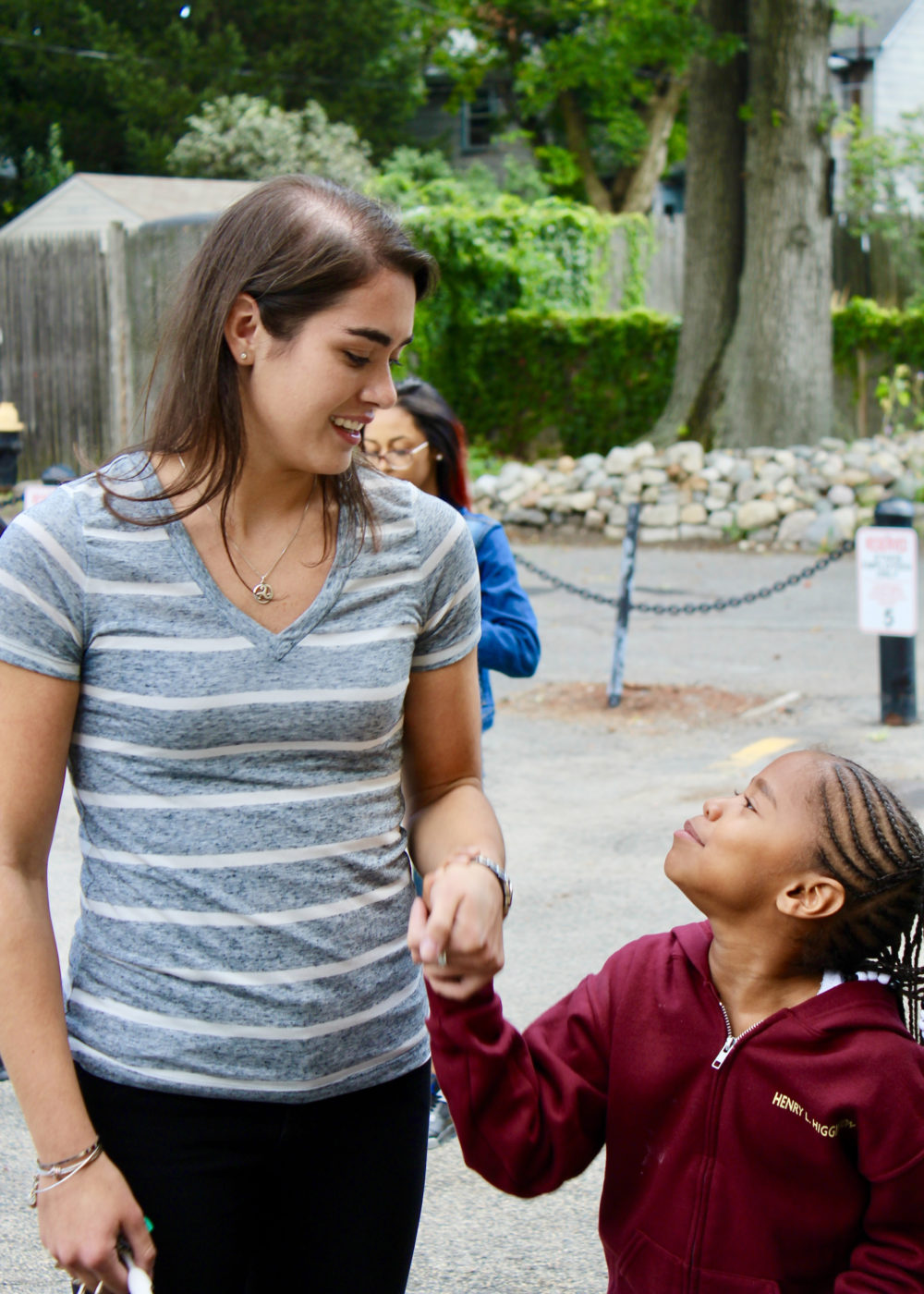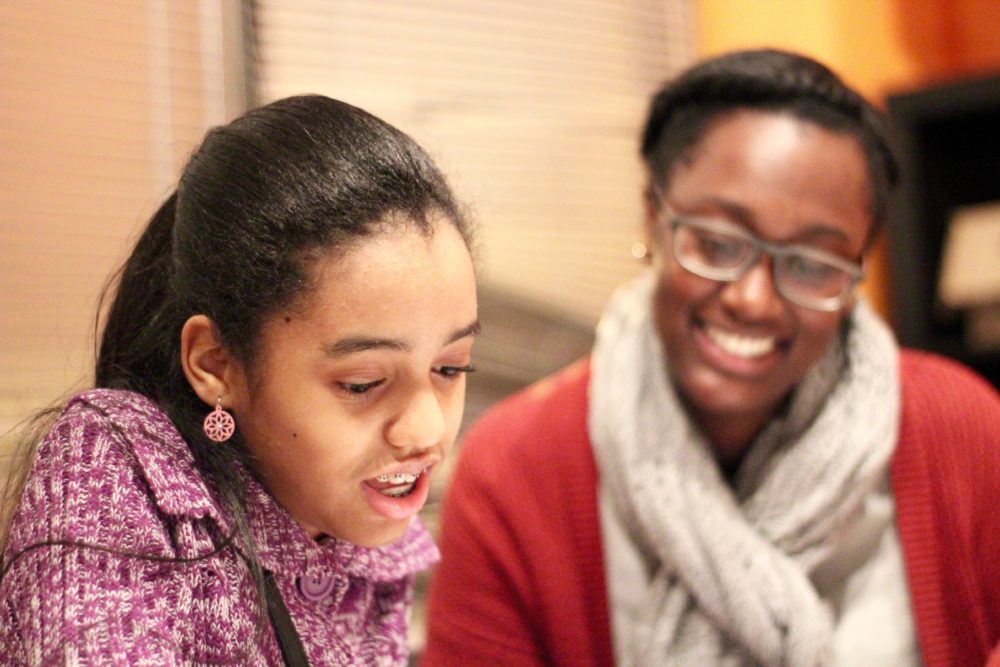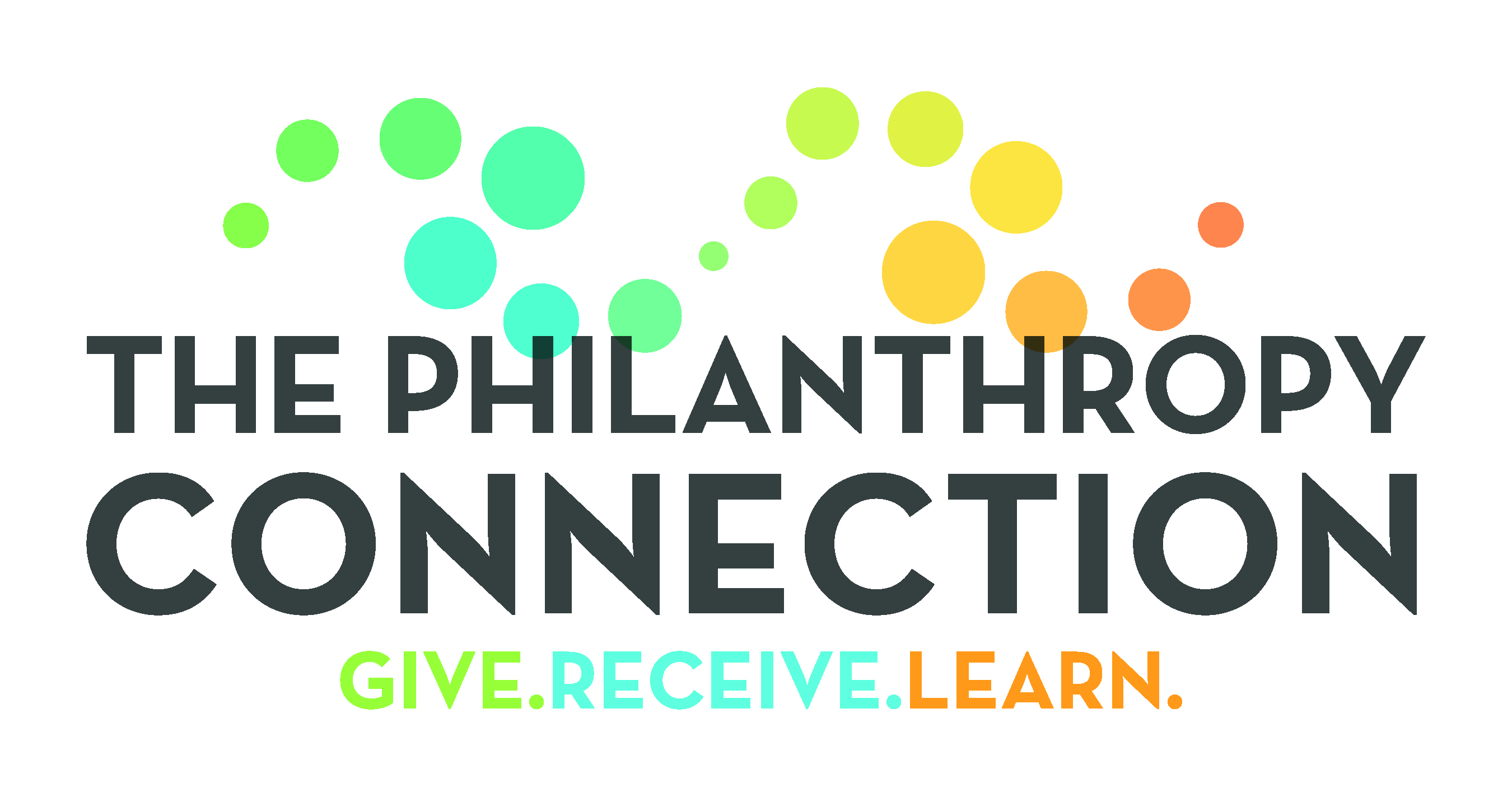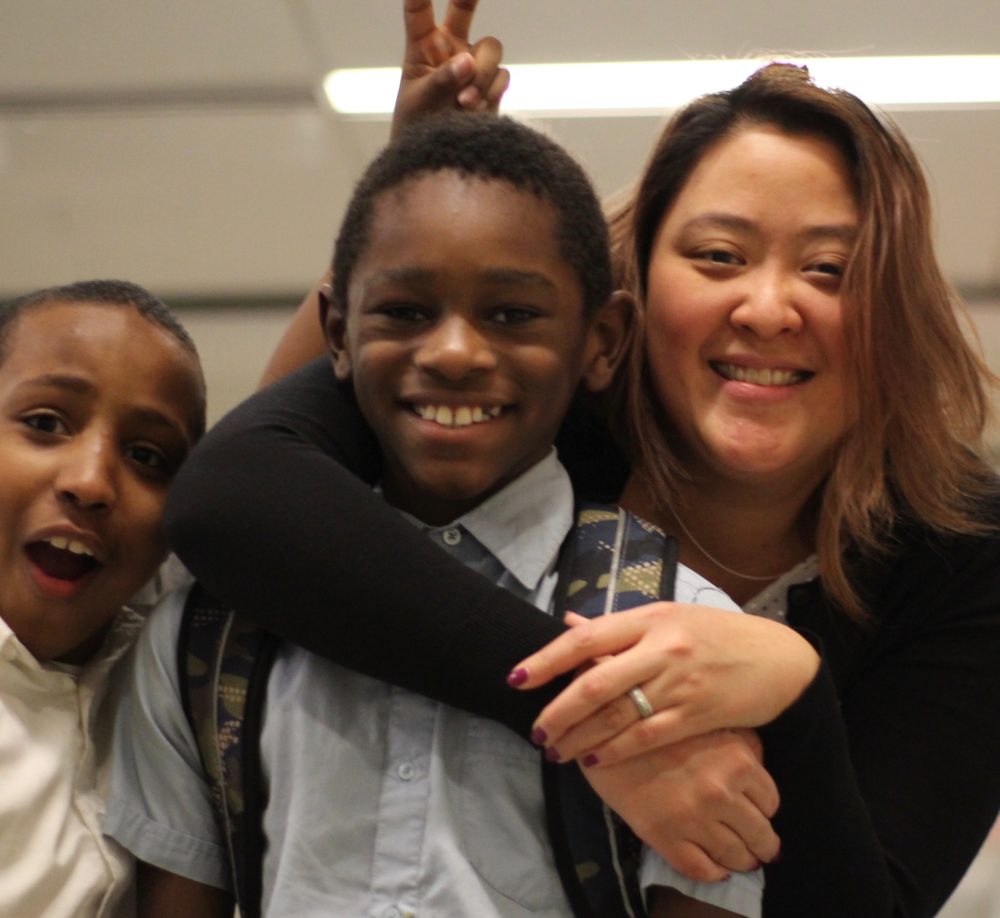The Interview with Yi-Chin Chen
Friends of the Children in Boston is one of TPC’s 2017-18 grantees. Based in Jamaica Plain, it works with 111 children, called Achievers, who are hand-selected to participate in a program geared to changing their stories and breaking the cycle of poverty. Each Achiever is paired with a staff member, called a Mentor, who forms a relationship with the Achiever and his or her family, and then works to help address the challenges each child faces daily. Grantee Liaison Meg Hoffman spoke with Yi-Chin Chen, Executive Director of Friends of the Children, to learn more about her personal connection to the Achievers and how TPC’s grant has helped propel them into a new phase of organizational growth.
Tell us a little about yourself and how you came to Friends.
I was drawn to working with vulnerable children due to my upbringing: I am an immigrant, born and raised in Taiwan in a home that was not very peaceful. At the age of 16, I left my home due to family challenges. I came to the US in my late teens, and have been on my own ever since. I pursued the opportunity to work with young people because I see myself in them – the challenges that affected me are similar to those these children face today. I learn so much from the young people I work with.
I am a trained social worker, and have been since 2003. My work with young people in Boston started in 1999, with the GEAR UP Program in Allston/Brighton. After I received my MSW in 2003, I moved on to work at the Hyde Square Task Force and stayed there for 12 years. I then came to Friends and, as of this month, I have been here for two years! I was fortunate to have had other opportunities to consider, but found the mission of Friends to be compelling and their understanding of what it takes to do the work to support children facing significant challenges made my choice easy. Looking across the sector, Friends stands out in terms of alignment with what I believe in and what I want to see the world become. My co-workers pour their hearts and souls into their work every day.
You mentioned in your application a number of other organizations (Big Brothers Big Sisters of Massachusetts Bay, Silver Lining Mentoring, Big Sister Association of Greater Boston) that are involved in similar work. What makes Friends different?
 I believe Friends is unique in three significant ways…
I believe Friends is unique in three significant ways…
First is our intentionality in selecting children at the highest risk level. Families can’t apply; Friends hand-selects children who are determined to be the most in need of support. These children live in poverty and have multiple layers of complexities in their lives like homelessness, parental incarceration, domestic violence, or being in the foster care system. It’s never just one factor that the child is facing – there are often many already present.
Second is the long-term commitment Friends makes. As long as the caretaker says “yes” to enrolling a child, Friends will stay with that child for 12.5 years – from kindergarten through high school graduation. We are also seeing the need for continued support as these young adults transition into their post-secondary plans. Friends makes the commitment to the child and family, regardless of what is going on in that child’s life. Traditional youth programs for at-risk populations are often shorter term and/or are based on, for example, a particular residential requirement or the need to carry a certain GPA. Friends recognizes the layered complexities of the lives of Achievers, and we strive to ensure that we don’t create even more barriers to access available resources. When we say no matter what, we mean no matter what. The Mentor is a connection to the family, no matter what.
The third difference is that our Mentors are not volunteers, but full-time salaried staff. They are highly-trained in the skills needed to lead and inspire amidst the challenges that these children face. Our program model is designed this way because a certain level of professional development is required in order to navigate the always complex, sometimes intense, worlds of the young people we serve. While we certainly appreciate and respect volunteers, we also recognize the special training required to do the work that we do.
What is your goal for Friends over the next five years?
We are at a very exciting time. We plan to grow our work by 30% in the next three years. Last year, we had 111 Achievers, and by the end of 2020 we plan to increase that number to 150 while maintaining our intensive selection criteria. We currently partner with a school that is part of the Boston Public School system. Over the next three years, our expansion plans include adding three to five new school partners. As we have since day one, we have a strong commitment to evaluation and outcomes data. We want to improve our evaluation process so we can determine what is most effective in setting Achievers up for success in adulthood. Finally, we want to help these young people celebrate their successes, wherever their journeys may take them.
Tell me how TPC’s grant is being used. What is the impact of TPC funding?
 The TPC grant came at the beginning of a growth period. Friends had been growing steadily in the last few years in terms of internal capacity building. TPC gave us the confidence to embark on a growth plan that we have wanted to do for some time. We consider the TPC grant to be a badge of honor – it gave us confidence internally, and credibility externally. We can and have actually leveraged our TPC grantee status with other foundations and donors. Most exciting, shortly after we received the TPC grant, we learned that we would be awarded a $300,000 investment from the Social Innovation Fund. We don’t believe that would have happened if we hadn’t been recognized by organizations with excellent reputations like TPC.
The TPC grant came at the beginning of a growth period. Friends had been growing steadily in the last few years in terms of internal capacity building. TPC gave us the confidence to embark on a growth plan that we have wanted to do for some time. We consider the TPC grant to be a badge of honor – it gave us confidence internally, and credibility externally. We can and have actually leveraged our TPC grantee status with other foundations and donors. Most exciting, shortly after we received the TPC grant, we learned that we would be awarded a $300,000 investment from the Social Innovation Fund. We don’t believe that would have happened if we hadn’t been recognized by organizations with excellent reputations like TPC.
What else do you hope to gain from your relationship with TPC? Are there other ways TPC members could help you?
All of our interactions with TPC members thus far have left us in awe of the “talent in the room.” It is inspiring to be surrounded by intelligent and accomplished women with decades of professional experience. We would jump at the chance to meet with members who could share their experiences, especially as they relate to growing an organization. We would welcome these smart and competent women as our teachers and mentors. We would also welcome more opportunities to connect with other grantees. Organizations like Silver Lining Mentoring have provided high-quality services to similar populations, so it would be wonderful to be able to learn from one another.
What is most gratifying about your work? Is there an example that stands out for you?
Knowing that the work is transformative in the lives of the Achievers. This is the first time, after doing youth work for a long time, that I can see outcomes that I’ve not seen elsewhere that are a direct result of what Friends is achieving. One example is a young girl in the sixth grade. She came from a challenging home and is being raised by her grandmother because her mom struggles with substance use disorder. All of her siblings have been in the foster care system. I met her two years ago and she was shy, very anxious, struggling with peer relationships, and having a difficult time learning, which caused her to have little confidence in school. Her Mentor stuck with her, working diligently one-on-one, and also pairing her with other girls her age so she could practice peer relationships. She dances now… she smiles. She is doing so well in school that her teacher comments that she is such a different girl. She feels safe with her Mentor and feels that she belongs with Friends.
Think about what she faces outside of the program: her mom will have a lifelong struggle with addiction. But with the consistency of the Mentor and the intentionality of the Friends work, she is doing very well and is growing into a very different person. She now sets goals for herself and she is hopeful. When you have hope, it makes all the difference in the world. This is just one story among the 100+ such stories we can tell each day.
Anything else you want TPC members to know?
I want members to know that the power of collective giving makes a huge difference. The TPC grant sets a really strong foundation for where Friends is today and where it is going. It is truly a big deal for an organization of our size, and one that is committed to doing really difficult work. Thank you as a group, and thank each one of you for supporting us.

